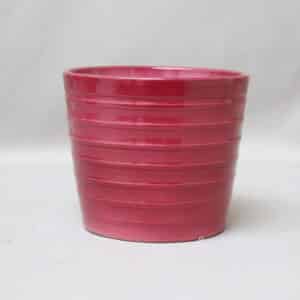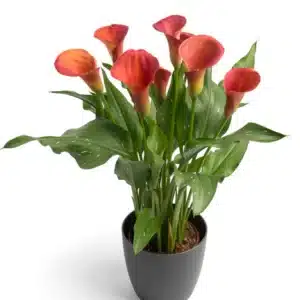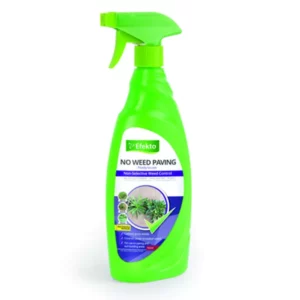Verbena for vitality: a plant packed with healt...
DIY and how-to

Verbena (verbena officinalis), also known by the name vervain, is a flowering plant native to South America and Asia. That hasn’t stopped it from soaring in popularity among South African gardeners. And it’s easy to see why: its beautiful mauve flowers and entrancing scent make it the ideal choice for a garden built for the senses.
But what about the benefits that go beyond the senses? Verbena is packed with potential health benefits, which we explore below.
Getting to know verbena
Growing well in hanging baskets, pots, rockeries or garden beds, verbena is a herbaceous creeping plant with square stems and beautiful medium-sized purple flowers that grow in branched clusters.
While most verbena species are perennials, some are annuals.
Their pretty lilac flowers mean they work well as a bedding or border plant and attract pollinators to the garden. They thrive in full sun and well-drained soil.
Parts of the plant that grow above ground have been used in traditional medicine across the globe for years, purportedly aiding mental health conditions like depression and anxiety, and physical ailments including gallbladder disease, cystitis and inflammation. In traditional Chinese medicine it has been used in antimalarial tinctures.
Verbena for R ’n R
The distinctly pleasing scent of verbena is probably enough to lighten one’s mood and bring on a sense of calm, but verbena could help with relaxation in more than one way.
In fact, insomniacs can especially appreciate the potential sedative power of verbena. A tea made with the dried leaves of the plant is said to soothe the mind, relieving stress or nervousness.
Besides this, the flavonoids and tannins found in the plant have been associated with anti-anxiety and sedative effects.
Verbena for digestive health
Thanks to its flavonoid compound contents, the common verbena is thought to have antispasmodic powers. This means that it can be used to relieve spasms of involuntary muscles.
One area where this comes in useful is for indigestion. Some people find that tea or infusions made with leaves from the verbena plant can treat digestive dysfunction.
A promising study has shown that the root extract from the verbena plant has antidiarrhoeal activity, providing “scientific support for [ ] traditional use of the plant material for treatment of diarrhoeal diseases”. While the research was not conducted on human participants, it is promising.
Verbena for immune support
Inflammation is your body’s immune response to viruses and bacteria, and is essential for fighting germs that enter the body.
Promisingly, this 2023 study suggests that verbena extract has an anti-inflammatory effect against viral infection and regulates the activation, maturation, and killing functions of cells that play a key role in eliminating germ-infected cells.
Verbena and brain health
Verbenalin is a compound found in the verbena plant that could improve brain function after a stroke. This is because the compound promotes the development of new blood vessels in the brain, ensuring enough energy and blood can reach the brain.
That’s not all.
Alzheimer’s disease is a neurological condition where brain cells (neurons) rapidly deteriorate and die. A key protein that is involved in the development of Alzheimer’s disease is amyloid beta, and research suggests that verbenalin may reduce the toxicity of this protein, slowing down the progression of the disease.
Antimicrobial properties
There is growing interest among scientists in the antimicrobial benefits of essential oils made using the verbena plant. This is especially exciting in the health sciences community, with a range of pathogens growing resistance against current antibiotics.
According to one study, the root of the verbena plant showed efficacy against infectious diseases.
Other research also suggests that flavonoids could inhibit bacterial attachment to the host and neutralise toxicity against human cells, but this is not yet proven.
Grow your own verbena
Bring verbena into your own garden by planting the verbena showtime mix, available online* and in-store at your nearest Stodels Garden Centre (*Western Cape only).
Plant the seeds in well-draining soil in a spot in your garden that will get at least eight hours of full sun daily.
These plants don’t enjoy soggy soil, but do appreciate staying hydrated, so make sure they get an inch of water per week (either through watering, or from rainfall as the seasons allow).
Growing your verbena in a hanging basket or pot? Feed it with a liquid fertiliser. If you’re growing yours as bedding or a border plant, apply a slow-release fertiliser so that they grow to impress.
For all your verbena and other bedding plant needs, visit your closest Stodels Garden Centre.
You might also like
Shop online
-
- Sale!
ZANTEDESCHIA SUNSET PASSION BULBS
- Original price was: R89.99.R62.99Current price is: R62.99.
- Add to cart Learn More
-
PLASTIC WINDOW BOX VERSILIA GREEN 40CM – 60CM
- R179.99 – R279.99
- Select options This product has multiple variants. The options may be chosen on the product page Learn More




